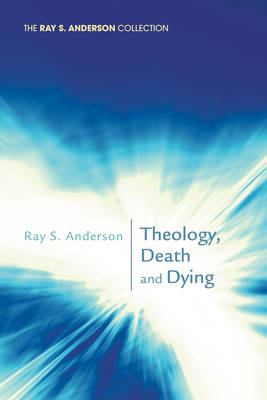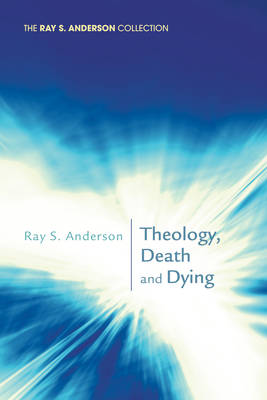
- Afhalen na 1 uur in een winkel met voorraad
- Gratis thuislevering in België vanaf € 30
- Ruim aanbod met 7 miljoen producten
- Afhalen na 1 uur in een winkel met voorraad
- Gratis thuislevering in België vanaf € 30
- Ruim aanbod met 7 miljoen producten
Zoeken
€ 25,45
+ 50 punten
Uitvoering
Omschrijving
How do we make sense of death--in theology, in philosophy, in experience? How do religions other than Christianity deal with death and with dying? In the now predominantly secular societies of the West, what are we to make of the theologies of death developed by writers such as Becker, Hick, Thielicke, and Macquarrie? Ray Anderson tackles his subject with clarity and without sentimentality. He discusses first the treatment--and indeed, the denial--of death by contemporary Western society, and its place in other religious traditions. Going on to discuss the origins of a Christian theology of death, he examines the legacy of Judaism and seeks to lay the foundations for a Christian anthropology in the unity of the body and soul. Death, he argues, is alien to God's determination of our personhood. Outlining a classic Christian understanding of the death and resurrection of Jesus Christ, he explores the implications of the Passion for our own mortality. Even if the sting of death has been removed, the experience of dying and bereavement remains. Ray Anderson considers pastoral approaches to dying in the light of his observations and arguments and makes his case for a reintegration of the experience of dying into our communities.
Specificaties
Betrokkenen
- Auteur(s):
- Uitgeverij:
Inhoud
- Aantal bladzijden:
- 178
- Taal:
- Engels
- Reeks:
Eigenschappen
- Productcode (EAN):
- 9781620322116
- Verschijningsdatum:
- 14/04/2012
- Uitvoering:
- Paperback
- Formaat:
- Trade paperback (VS)
- Afmetingen:
- 137 mm x 213 mm
- Gewicht:
- 217 g

Alleen bij Standaard Boekhandel
+ 50 punten op je klantenkaart van Standaard Boekhandel
Beoordelingen
We publiceren alleen reviews die voldoen aan de voorwaarden voor reviews. Bekijk onze voorwaarden voor reviews.








